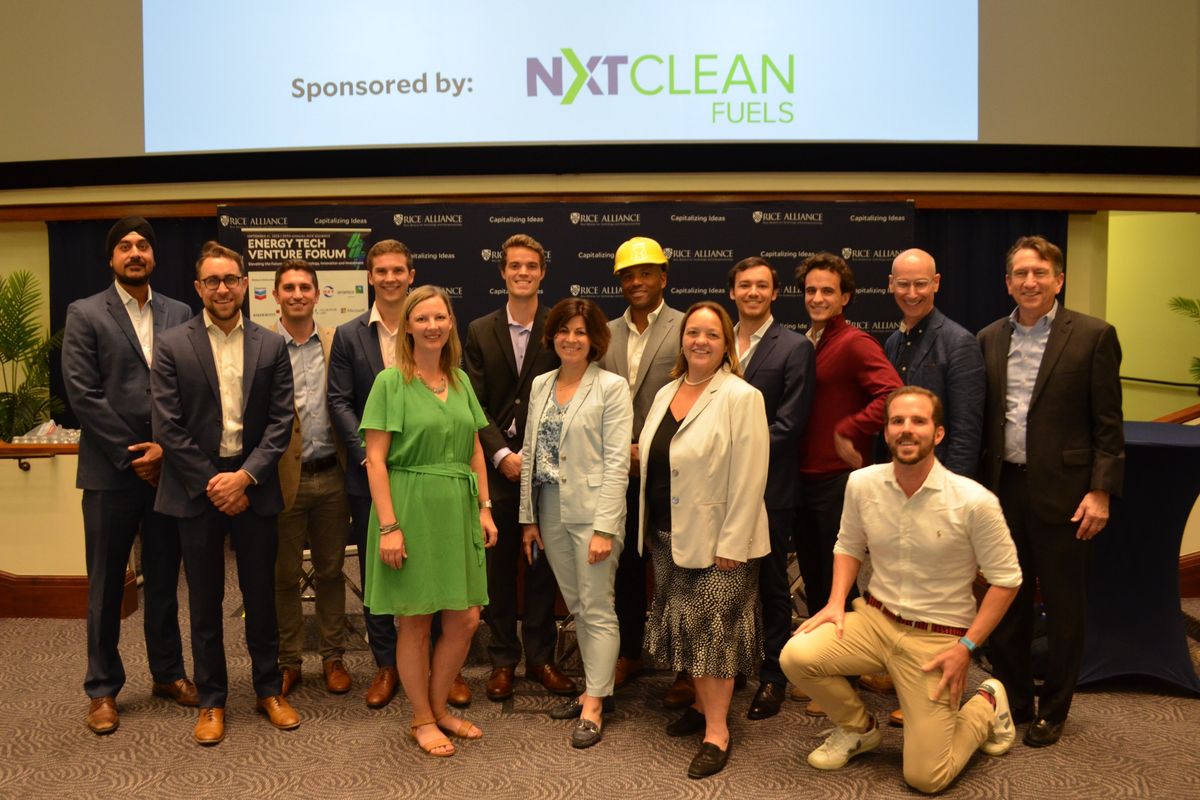Investors name 10 most-promising energy tech companies at Houston conference
startups to know
At the 20th annual Energy Tech Venture Forum presented by Rice Alliance for technology and Entrepreneurship, 11 startups scored recognition from the event's investors who evaluated over 90 early-stage energy transition companies.
"The selection process was both exhilarating and challenging given the incredible ideas we've seen today," says Jason Sidhu, director of information services business engagement at TC Energy, who announced the top companies. "I want to extend my gratitude to every company that participate din this year's Energy Tech Venture Forum. Your commitment to solving energy problems and pursuing ambitions ideas is truly commendable."
In addition to the top 10 most-promising companies, the event's attendees decided the people's choice pick out of the 50 or so pitching companies. The winner of that recognition was Calgary, Alberta-based Galatea Technologies, which has created a tech platform to enhance workflows for operational, financial, and environmental performance.
The top companies, according to the Rice Alliance experts and investors, were:
- Circular economy startup, Polystyvert. Based in Montreal, the company has created a unique dissolution recycling process that creates a material that can contribute to cutting carbon emissions by up to 90 percent.
- United Kingdom-based Mirico provides a tracking technology to its customers to measure climate gases (like methane, carbon dioxide, nitrous oxide, and ammonia), across areas up to half a square mile and in all conditions.
- Protein Evolution, from New Haven, Connecticut, taps into a combination of green chemistry and enzyme technology to break down synthetic polymers.
- Another Canadian company, Ayrton Energy, based in Calgary, created a liquid organic H2 carrier (LOHC) storage technology presents an opportunity for large, scalable and efficient transport of H2 over long distances.
- Also representing New Haven, Connecticut, Carbon Loop is on a mission to make carbon capture and conversion scalable through carbon dioxide electrolysis using a proprietary catalyst to convert captured carbon dioxide into methanol.d
- Based in London, Mobilus Labs has designed a new way for frontline communication with an in-helmet hardware and software solution. software solution designed for the frontline workforce.
- 1s1 Energy, based in California, is working on producing low-cost green hydrogen by creating new materials to unlock unprecedented electrolyzer efficiency, durability, and more.
- From Skokie, Illinois, Numat is specializing in solutions within Metal-organic framework (MOF) research to enhance the process of separating the hazardous chemicals negatively impacting human health and the environment.
- Mantel, headquartered in Cambridge, Massachusetts, created a molten borate technology to capture CO2 in a new and efficient way.
- The lone Houston-based company, Mars Materials is working to produce acrylonitrile using CO2 and biomass to enable decarbonization applications in carbon fiber and wastewater treatment.






